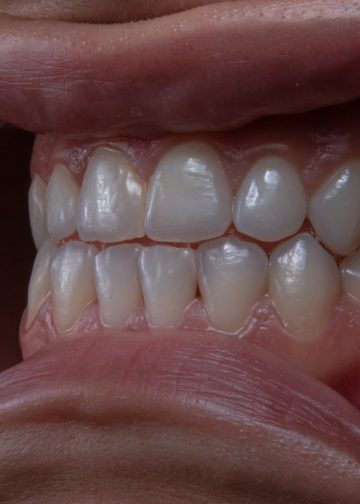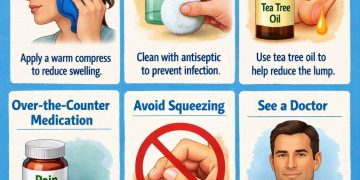The Mediterranean diet is a healthy style of eating based on the traditional foods that people from countries surrounding the Mediterranean used to eat. That includes countries like Greece, France, Spain, and Italy. According to researchers, people adhering to this diet were generally healthier, with a lower prevalence of chronic conditions, which can be attributed to the nutritional benefits of the Mediterranean diet, such as heart attacks, type 2 diabetes, strokes, or premature death.
Ideally, Mediterranean diet snacks support healthy blood sugar levels, promote heart health, reduce the buildup of platelets in the blood, protect brain function, and contribute to weight loss. Moreover, the recommended foods can inhibit the proliferation of cancerous cells and thus slow down the development of the illness. That said, here is what to eat and not to eat while following the Mediterranean diet:
Foods To Eat In The Mediterranean Diet
The following are the primary food components of the Mediterranean diet:
1) Vegetables
Vegetables commonly found in the Mediterranean diet include kale, spinach, tomatoes, carrots, turnips, broccoli, cauliflower, potatoes, cucumbers, onions, pumpkins, eggplant, mushrooms, lettuce, cabbage, collard greens, and sweet potatoes.
Notably, a diet rich in vegetables can reduce the risk of heart disease (Aune et al., 2017), stroke, and digestive problems. Also, they can prevent blood sugar fluctuations and help keep appetite in check. To reap these health benefits, aim to make vegetables the bulk of your meals when following a Mediterranean diet. They should be consumed at least two times daily in about seven to ten servings.
2) Fruits
The Mediterranean diet encourages a high intake of fruits like bananas, oranges, strawberries, grapes, melons, pears, apples, dates, tangerines, avocados, apricots, figs, and peaches. Fruits possess ample micronutrients, such as vitamins C and E, potassium, and dietary fiber, that promote heart health by reducing inflammation, maintaining healthy blood pressure, and supporting overall cardiovascular function. Ideally, people who consume fruits have a low risk of cardiovascular problems (Wang et al., 2014). Therefore, eating the above fruits one to two times every day is recommended.
3) Good Fats
The Mediterranean diet consists of high amounts of unsaturated fats. These good fats contain monounsaturated and polyunsaturated fats that are healthy for the heart. Additionally, they can help decrease bad LDL cholesterol levels, lower blood pressure, and regulate irregular heartbeats. The primary sources of unsaturated fats include oils, olives, avocados, walnuts, seeds, soymilk, fatty fish, and tofu.
4) Whole Grains
Whole grains are a significant component of the Mediterranean diet. They contain vital natural nutrients such as lignans, phenolic compounds, vitamins, fibers, phytochemicals, and bioactive components that are good for overall health. For instance, they can lower cholesterol levels, stabilize blood sugars, reduce the susceptibility of type 2 diabetes, and promote weight loss.
Mainly, B vitamins ensure body cells function properly, while fiber helps digestion and prevents constipation. As a result, it's a good idea to choose whole-grain cereals such as whole wheat bread, corn, rye, bulgar, oats, brown rice, and barley. You should have one to two servings of whole grains at every meal.
5) Nuts
Nuts are a mainstay of the Mediterranean diet. They’re rich in healthy fats, protein, and fiber. These are the ideal nutrients to stabilize blood sugars, reduce inflammation, improve cholesterol levels, and keep you full. Therefore, it’s good to include a quarter-cup of nuts in your meals daily, and you can pair them with vegetables or fruits. Mediterranean nuts include almonds, walnuts, chestnuts, pine nuts, hazelnuts, macadamia nuts, and pistachios.
Foods To Avoid In The Mediterranean Diet
Here are the foods to avoid while on a Mediterranean diet:
6) Added Sugar
Added sugar is mainly found in ice cream, candies, soda, cakes, table sugar, and syrup. Ideally, refined sugar is not a part of the Mediterranean diet, so you should skip the above foods most of the time. Instead, you can satisfy your sugar cravings by eating fresh fruits such as dates and figs.
7) Processed Meat
Processed meats include hot dogs, sausages, beef jerky, deli meats, bacon, corned meats, salami, ham, and lunchmeat. They contain harmful chemicals that may cause chronic illnesses like cancer, heart disease, and diabetes. (Bouvard et al., 2015)
Therefore, you may want to avoid processed meats for more health benefits. You can swap it for fish or seafood, including tilapia, sardines, trout, salmon, crab, octopus, lobster, shrimp, oyster, and mussels. Notably, fish is a source of omega-3 fatty acids that keep your heart and brain healthy.
8) Refined Grains
Refined grain products include white bread, chips, white rice, pasta, crackers, corn grits, and tortillas. These foods lack plant compounds such as B vitamins, iron, and levels of fiber responsible for many health benefits. In that case, it’s best to cut the consumption of such refined grains and go for whole grains.
9) Refined Oils
The Mediterranean diet only encourages the consumption of natural fats. Therefore, you should avoid refined oils such as soybean, grapeseed, cottonseed, corn, and canola oil. Some refined oils undergo processing methods that may result in the loss of beneficial compounds and, in some cases, the formation of trans fats, which are harmful to health. (Mozaffarian, D., & Clarke, R. 2009) So, you may want to use varieties of natural oils, such as olive oil, which is rich in healthy fats.
Conclusion
The Mediterranean diet emphasizes the consumption of nutrient-rich foods, including fruits, vegetables, nuts, and whole grains, while limiting processed foods, refined grains, and added sugars. By adhering to the principles of this diet, it can reap numerous health benefits, such as improved heart health, better blood sugar regulation, and weight management. Thus, adopting the Mediterranean diet is a powerful way to enhance well-being and ward off diet-related health issues— following the diet principles in your daily meal plan.





















